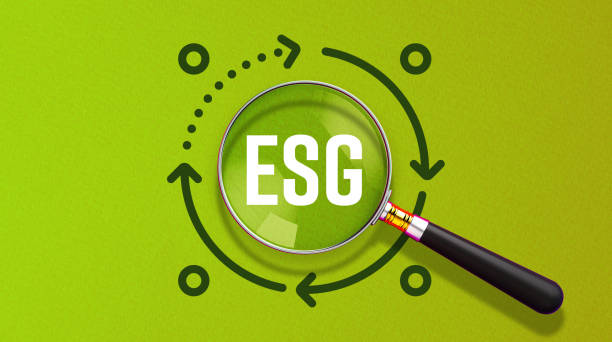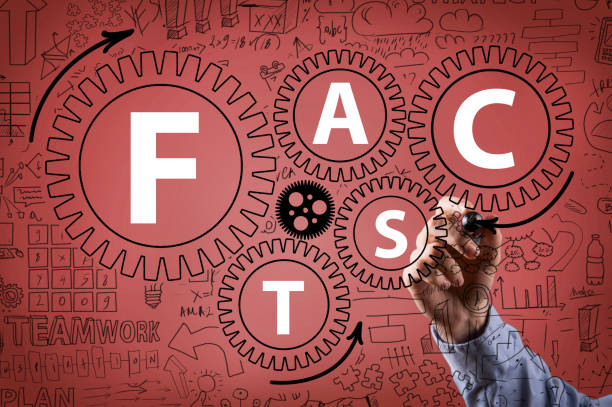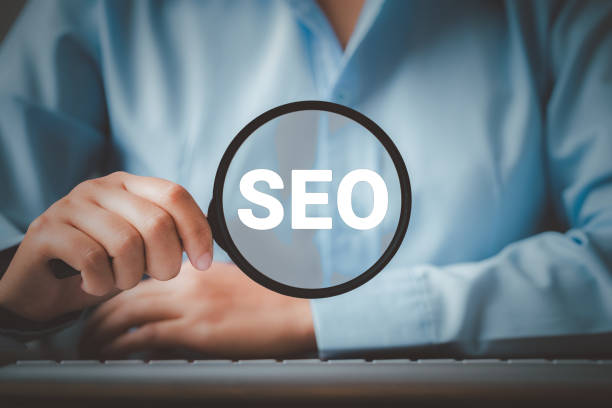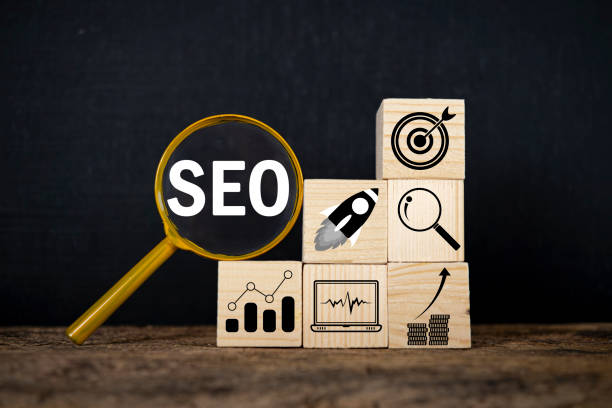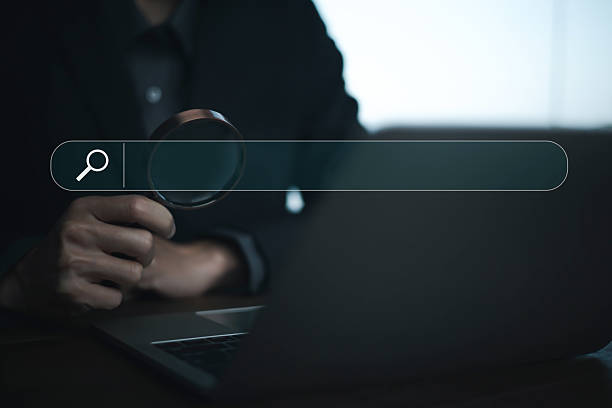What is Off-Page SEO and Why is it Important?
Off-Page SEO refers to a set of actions taken outside of your website with the goal of improving your website’s ranking in Google search results and other search engines. These actions primarily focus on building credibility and increasing the domain authority of your site. Unlike On-Page SEO, which involves optimizing the content within the site and its structure, Off-Page SEO focuses on external factors such as link building, social media, and branding. The importance of Off-Page SEO lies in the fact that Google and other search engines identify websites that receive links from other reputable sources as more credible and trustworthy. This credibility leads to an improved site ranking in search results and increased inbound traffic. In essence, Off-Page SEO shows Google that your website is a credible and valuable resource in its field. Therefore, investing in Off-Page SEO is an essential strategy for any business looking to increase its visibility in the online world.
Off-Page SEO is important for website success in several ways:
- Increase Domain Authority: High-quality links from reputable websites help increase your domain authority.
- Improve Search Engine Ranking: The more authoritative your website is, the better ranking it will achieve in search results.
- Increase Inbound Traffic: Better ranking in search results leads to increased traffic to your website.
- Improve Branding: Active presence on social media and creating valuable content helps improve branding and brand recognition.
In conclusion, Off-Page SEO is a vital part of an overall SEO strategy and should not be overlooked.
Are you unhappy with low sales from your online store? Rasawap is your solution for having a professional and high-selling online store. ✅ Significant increase in sales and revenue ✅ Easy and enjoyable shopping experience for customers ⚡ Get a free consultation from Rasawap right now!
Link Building: The Main Pillar of Off-Page SEO
Link Building is one of the most important, and perhaps the main, part of Off-Page SEO. Simply put, link building is the process of receiving links from other websites to your website. These links act as “votes of confidence” from other websites to your website, showing Google that your website is a reputable and valuable resource. The more inbound links to your website, and the more authoritative these links are, the higher your website’s authority will be with Google. Link building should be done naturally and with the aim of providing value to users. Buying links or using spam methods for link building can lead to a penalty from Google instead of improving the site’s ranking.
There are different types of links, each with a different impact on SEO:
- Follow Links: These types of links tell search engines to pass the authority of the source website to the destination website.
- Nofollow Links: These types of links tell search engines not to pass the authority of the source website to the destination website.
- Dofollow Links: These types of links allow search engines to follow the link and transfer its value to the destination page.
- Anchor Text Links: The clickable text that links to your website. Using relevant keywords in the Anchor Text can help improve your site’s ranking for those keywords.
Click here to preview your posts with PRO themes ››
For effective link building, you should focus on creating valuable and engaging content so that other websites naturally link to your content. You can also connect with relevant websites in your field and ask them to link to your content.
Advanced Link Building Strategies in Off-Page SEO
Beyond basic link building methods, there are more advanced strategies that can dramatically improve your site’s ranking in Off-Page SEO. One of these strategies is “Broken Link Building.” In this method, you find broken links (links that lead to pages with a 404 error) on other websites and notify the administrators of those websites. Then, you suggest that they replace the broken link with a link to your relevant content on your website. This method helps the website in question to have a better user experience and gives you a high-quality link.
Another strategy is “Pillar Content Link Building.” In this method, you create comprehensive content on a particular topic, and then produce other subsidiary and related content on different aspects of that topic. Then, you link all this content to the main pillar content. This method shows Google that your website is a credible reference on that topic and helps improve your site’s ranking for those keywords.
Also, using the “Infographic Link Building” method can be very effective. Infographics are visually appealing and shareable content that can easily attract high-quality links. By creating engaging and relevant infographics to your field, you can ask other websites to publish these infographics on their websites and link to your website. These methods require more time and effort, but will also yield better results. By choosing the right strategy and implementing it accurately, you can significantly improve your site’s ranking in search results and attract more traffic.
Social Media and its Role in Off-Page SEO
Social Media has become a powerful tool for marketing and SEO. Although social media links do not directly affect the site’s ranking in search results (because they are often Nofollow), they can indirectly help improve Off-Page SEO.
Active presence on social media can help increase your Brand Awareness. The more people who are familiar with your brand, the more likely they are to search for your brand name and visit your website. This increase in inbound traffic, in turn, can help improve your site’s ranking in search results.
In addition, social media can help disseminate your content. By publishing valuable and engaging content on social media, you can attract more people to your website and increase the likelihood that these people will share your content with others and link to it.
To effectively use social media in Off-Page SEO, you must have a clear strategy. This strategy should include:
- Choosing the right social media: Choose social media where your target audience is present.
- Creating engaging and valuable content: Produce content that is attractive and useful to your audience.
- Engaging with the audience: Interact with your audience on social media and respond to their questions and comments.
- Measuring results: Measure the results of your activities on social media and improve your strategy based on them.
Click here to preview your posts with PRO themes ››
By using social media correctly, you can significantly help improve your website’s Off-Page SEO and attract more traffic.
Do visitors to your online store leave before buying? Don’t worry anymore! With Rasawap’s professional online store design services, solve the problem of not converting visitors into customers forever! ✅ Significant increase in conversion rate and sales ✅ Unique and attractive user experience ⚡ Contact us now for a free consultation!
Creating Valuable Content; The Key to Success in Off-Page SEO
Creating Valuable Content (Content Marketing) is one of the most important success factors in Off-Page SEO. Valuable content is content that is useful, engaging, and informative for your audience. This type of content naturally attracts high-quality links and encourages people to share it.
There are different types of content you can create for Off-Page SEO:
- Blog Posts: Articles that answer your audience’s questions and problems.
- Infographics: Visually appealing and shareable content.
- Videos: Videos that educate, entertain, or inform.
- E-books: Comprehensive content that discusses a specific topic in detail.
- Podcasts: Audio files that address various topics.
To produce valuable content, you should pay attention to the following points:
- Knowing the Target Audience: Know the needs and interests of your audience and create content that is appealing to them.
- Keyword Research: Identify keywords relevant to your field and use them in your content.
- Provide Accurate and Up-to-Date Information: The information you provide in your content should be accurate and up-to-date.
- Optimize Content for Search Engines: Optimize your content for search engines to rank better in search results.
- Promote Content: Promote your content on social media and other marketing channels to get more people to see it.
By creating valuable content, you can significantly help improve your website’s Off-Page SEO and attract more traffic. Also, valuable content can help improve branding and increase your credibility in your field.
In general, to have appropriate content, you should always consider the Off-Page SEO of your website.
Branding and its Relationship to Off-Page SEO
Branding is a process that helps create a unique identity for your business. A strong brand makes it easy for customers to recognize you and trust you. Branding can significantly help improve your website’s Off-Page SEO.
When your brand name is mentioned more often on the Internet (Brand Mentions), Google considers this a positive signal and gives your website a better ranking. Also, when people search for your brand name, it means they are interested in your business and this can also help improve your site’s ranking in search results.
For effective branding, you should pay attention to the following points:
- Creating an Attractive and Memorable Brand Name: Your brand name should be attractive, memorable, and relevant to your field.
- Designing a Unique Logo and Visual Identity: Your logo and visual identity should be unique and recognizable.
- Providing a Clear and Consistent Brand Message: Your brand message should be clear, consistent, and relevant to your values.
- Providing Quality Services and Products: The quality of your services and products should be high so that your customers are satisfied and recommend you to others.
- Active Presence on Social Media: Be active on social media and interact with your audience.
Click here to preview your posts with PRO themes ››
With strong branding, you can significantly help improve your website’s Off-Page SEO and attract more traffic. Also, branding can help increase customer loyalty and improve your business profitability. In fact, by increasing branding, you have also improved the Off-Page SEO of your site.
Local SEO and Its Impact on Off-Page SEO
Local SEO refers to optimizing your website and online presence to attract local customers. If your business has a physical location (such as a store or office), Local SEO can significantly help increase your traffic and sales. Local SEO and Off-Page SEO are two important aspects of SEO that interact with each other.
One of the most important factors in Local SEO is registering your business on Google My Business. By registering your business with this service, you can provide Google with information about your business (such as name, address, phone number, and hours of operation). This information is displayed in local search results and Google Maps, helping local customers find your business.
In addition to registering with Google My Business, you should also pay attention to the following:
- Optimizing Website for Local Keywords: Use keywords related to your field and geographic location on your website.
- Receiving Positive Reviews from Customers: Ask your customers to post their reviews about your business on Google My Business and other review sites.
- Creating Citations: Citation refers to mentioning the name, address, and phone number of your business on other websites.
- Active Presence on Local Social Media: Be active on local social media and interact with your local audience.
By optimizing your business for Local SEO, you can significantly help improve your website’s Off-Page SEO. Google gives more credibility to businesses that rank high in local search results, and this can help improve your site’s ranking in general search results as well. In general, Off-Page SEO is a kind of complement and enhancer of On-Page SEO.
Tools Required for Off-Page SEO
To effectively perform Off-Page SEO, you need to use various tools that help you analyze competitors, identify link building opportunities, monitor backlinks, and measure results.
Some of the most important Off-Page SEO tools include:
- Ahrefs: A comprehensive tool for backlink analysis, keyword research, competitor analysis, and rank monitoring.
- SEMrush: A powerful tool for keyword research, competitor analysis, rank monitoring, and traffic analysis.
- Moz: A popular tool for backlink analysis, keyword research, rank monitoring, and On-Page SEO analysis.
- Google Search Console: A free tool from Google that gives you valuable information about how your website is performing in search results.
- Google Analytics: A free tool from Google that gives you valuable information about your website traffic.
By using these tools, you can get accurate information about the Off-Page SEO performance of your website and adjust your strategies based on them. Also, these tools can help you identify link building opportunities and monitor competitor activities.
Remember that using these tools alone is not enough and you must have sufficient knowledge and experience in the field of Off-Page SEO to be able to use them effectively. In fact, Off-Page SEO is a combined knowledge.
| Tool Name | Application |
|---|---|
| Ahrefs | Backlink analysis, keyword research |
| SEMrush | Competitor analysis, rank monitoring |
| Moz | On-Page SEO analysis |
Are you losing business opportunities because of an old website? With Rasawap, solve the problem of not attracting potential customers through the website forever! ✅ Attracting more high-quality leads ✅ Increase brand credibility in the eyes of customers ⚡ Get a free corporate website design consultation
Measuring and Analyzing Off-Page SEO Results
Measuring and Analyzing Results is one of the most important steps in Off-Page SEO. Without measuring results, you cannot tell whether your strategies are effective or not and what changes you should make to them.
Some of the most important metrics you should measure in Off-Page SEO include:
- Number of Backlinks: Measure the number of backlinks to your website and check whether the number is increasing or not.
- Quality of Backlinks: Check the quality of backlinks to your website and make sure you are receiving links from reputable and relevant websites.
- Inbound Traffic from Search Engines: Measure the inbound traffic to your website from search engines and check whether this traffic is increasing or not.
- Keyword Ranking: Check your website’s ranking for your desired keywords and see if your ranking is improving or not.
- Domain Authority: Check the domain authority of your website and see if your authority is increasing or not.
Using tools like Google Analytics and Google Search Console, you can measure these metrics and analyze your results. You can also use paid tools like Ahrefs and SEMrush for more detailed analysis of backlinks and competitors.
Based on your analysis results, you can improve your Off-Page SEO strategies and achieve better results. Remember that Off-Page SEO is an ongoing process and requires patience. In this way, Off-Page SEO is a great help in being seen better.
Common Mistakes in Off-Page SEO and How to Avoid Them
In Off-Page SEO, like any other field, there are mistakes that may prevent you from achieving the desired results or even harm your website. Knowing these mistakes and how to avoid them can help you have an effective Off-Page SEO strategy.
Some of the common mistakes in Off-Page SEO include:
- Buying Backlinks: Buying backlinks is one of the most dangerous mistakes in Off-Page SEO. Google strongly opposes buying backlinks and penalizes websites that buy backlinks.
- Using Spam Links: Spam links are links received from low-quality and irrelevant websites. This type of link can harm your website.
- Excessive Link Building: Excessive and unnatural link building can show Google that you intend to artificially increase your site’s ranking and this can lead to a penalty for your website.
- Not Paying Attention to Content Quality: Producing low-quality and copied content is another common mistake in Off-Page SEO. Poor quality content cannot attract quality links and cannot help improve your site’s ranking in search results.
- Ignoring Social Media: Social media can play an important role in Off-Page SEO. Ignoring social media can cause you to miss out on many opportunities.
To avoid these mistakes, you must have an ethical and sustainable Off-Page SEO strategy. Instead of buying backlinks, focus on producing valuable content and building relationships with other websites. Instead of excessive link building, focus on natural and high-quality link building. And instead of ignoring social media, use them to promote your content and engage with your audience. By taking this approach, you can effectively improve your site’s ranking in search results and attract more traffic. Off-Page SEO will help you in this way.
FAQ
| Row | Question | Answer |
|---|---|---|
| 1 | What is Off-Page SEO? | Off-Page SEO refers to a set of actions that are done outside of your website to improve its ranking in search engines. These actions include backlink building, presence in social media, branding, and so on. |
| 2 | Why is Off-Page SEO so important? | Off-Page SEO shows search engines that your website is reputable, popular, and trustworthy. High-quality backlinks from reputable sites are a strong signal for better ranking and help increase your domain authority. |
| 3 | What are the most important components of Off-Page SEO? | The most important components of Off-Page SEO include: Link Building, Content Marketing, Social Media Marketing, Influencer Marketing, and Online Reputation Management. |
| 4 | What is a backlink and why is it important for Off-Page SEO? | A backlink is a link from another website to your website. These links act as “votes of confidence” in Google’s view and indicate the credibility of your content. The greater the number and quality of backlinks, the better your site will rank. |
| 5 | What are the types of backlinks in terms of their impact on SEO? | There are two main types of backlinks, including DoFollow and NoFollow. DoFollow backlinks transfer credibility (Link Juice) and directly affect ranking. NoFollows do not transfer credibility but can still generate traffic and help make the link profile look natural. (Also UGC and Sponsored) |
| 6 | How can you create quality backlinks for your site? | To build quality backlinks, you can use methods such as: creating excellent and shareable content, guest posting on relevant and reputable sites, broken link building, digital PR, and competitor backlink analysis. |
| 7 | What are Toxic Backlinks and how do they affect the site? | Toxic or spam backlinks are links from low-quality, spam, or irrelevant websites to your site. These backlinks can damage your site’s ranking and even lead to penalties by Google’s algorithms. |
| 8 | What is the role of social networks in Off-Page SEO? | Although social signals (likes, shares, etc.) are not directly a ranking factor, they help Off-Page SEO. They increase content visibility, increase direct traffic to the site, and ultimately increase the chance of earning natural backlinks and improving brand recognition. |
| 9 | What is the importance of diversity in the backlink profile? | Diversity in the backlink profile means that your links are from different sources (blogs, forums, news sites, directories), with diverse anchor texts, and with a combination of DoFollow and NoFollow links. This diversity shows Google that your link building is natural and organic. |
| 10 | What are the common mistakes in Off-Page SEO that should be avoided? | Common mistakes include: buying backlinks in bulk and from low-quality sources, over-optimization with target keywords, neglecting quality in favor of quantity in backlink building, lack of diversity in the link profile, and ignoring harmful backlinks and not Disavow them. |
And other services of Rasa Web advertising agency in the field of advertising
Smart Reports: A fast and efficient solution for managing campaigns with a focus on proprietary programming.
Smart SEO: Transform sales increase by helping with real data.
Smart Custom Software: Transform customer behavior analysis with marketing automation.
Smart Digital Branding: A combination of creativity and technology for digital branding through intelligent data analysis.
Smart Social Media: A new service to increase digital branding through intelligent data analysis.
And more than hundreds of other services in the field of internet advertising, advertising consulting and organizational solutions
Internet Advertising | Advertising Strategy | Ad Reporting
Resources
Off-Page SEO Checklist
,What is Off-Page SEO?
,Importance of Off-Page SEO
,What is Off-Page SEO?
? To promote your business in the digital world, Rasa Web Digital Marketing Agency offers innovative and effective solutions with expertise in Secure Website Design and SEO.
📍 Tehran, Mirdamad Street, next to the Central Bank, Kazerun Jonoubi Alley, Ramin Alley No. 6


